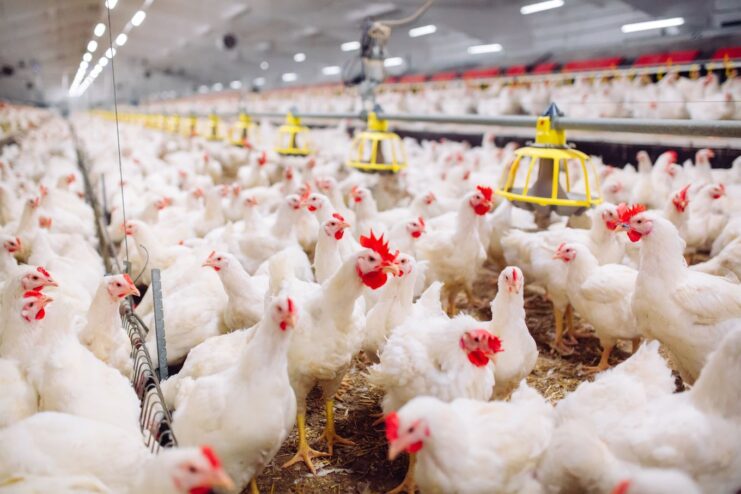In the ever-evolving world of poultry farming, broiler chickens stand out as the shining stars of the industry. These fast-growing, meaty birds have carved a significant niche for themselves in the global market. In this comprehensive guide, we will explore the world of broiler chickens, from their characteristics and challenges to their remarkable contribution to poultry farming, with a special focus on the role of broiler cages in maximizing their potential.
Broiler Chickens: The Feathered Powerhouses
Broiler chickens, or simply broilers, are a specialized breed of chickens bred for one primary purpose: meat production. Unlike their egg-laying counterparts, broilers are raised to be plump, succulent, and flavorful, making them the primary source of chicken meat consumed worldwide. These birds are known for their rapid growth and ability to efficiently convert feed into meat, making them a central player in the poultry industry.
The Key Attributes of Broiler Chickens
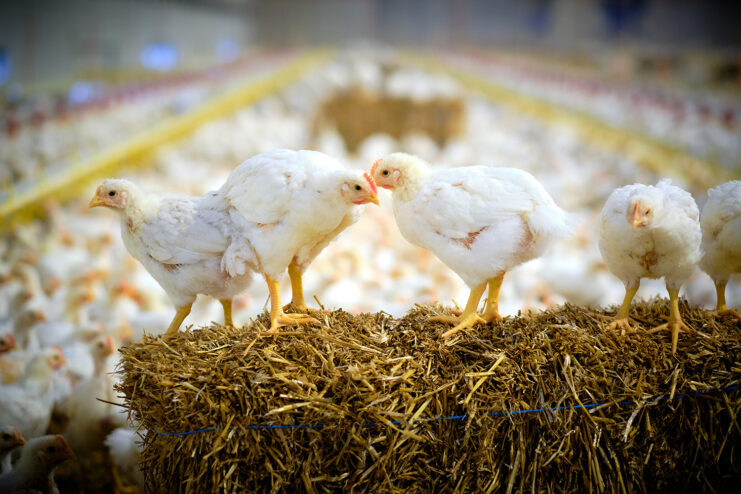
To truly comprehend the significance of broiler chickens, it’s imperative to delve deeper into their defining characteristics. These attributes set them apart as the workhorses of the poultry industry, with each facet contributing to their exceptional role in meat production:
1. Rapid Growth: A Race Against Time
Broiler chickens are the speedsters of the poultry world. Bred for the singular purpose of meat production, they have been fine-tuned to reach market weight in a fraction of the time compared to other chicken breeds. In a mere 5 to 7 weeks, these remarkable birds undergo a transformation from fluffy chicks to plump, meaty adults. This unparalleled growth rate is nothing short of astonishing and is one of the defining features that make broilers the economical choice for meat production. Their rapid maturation ensures a swift return on investment for poultry farmers, making broiler rearing a lucrative venture.
2. High Meat Yield: Nature’s Meat Machines
Broilers are often likened to nature’s meat machines and for good reason. One of their most remarkable attributes is their high meat-to-bone ratio. A substantial portion of their body, particularly the breast area, is composed of tender and succulent meat. This meat-centric anatomy is a culinary delight, and it is precisely what has made broiler chicken meat a favorite in kitchens worldwide. The abundant meat yield is not only a boon for consumers but also a testament to the broiler’s specialization in the meat production niche. It’s no exaggeration to say that broilers are the meat producer’s dream come true.
3. Efficient Feed Conversion: Champions of Economy
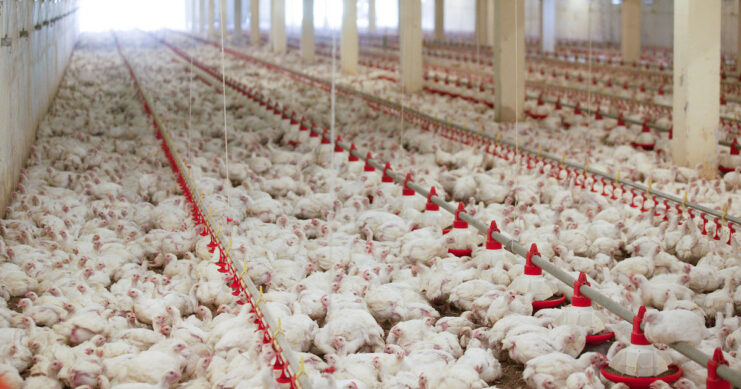
Efficiency reigns supreme in broiler farming, and these birds are the champions of economic feed conversion. They possess a remarkable ability to convert the feed they consume into meat with astonishing efficiency. This attribute has far-reaching implications for both farmers and consumers. For poultry farmers, it translates to cost-effectiveness as the amount of feed required to produce a pound of meat is minimal, maximizing the profitability of broiler farming operations. For consumers, it means accessible and affordable meat, making high-quality poultry products available to a broader demographic. The efficient feed conversion rates of broilers have played a pivotal role in making chicken one of the most widely consumed and versatile sources of protein across the globe.
Challenges in Broiler Chicken Farming
Although broiler chickens offer numerous advantages, it’s essential to acknowledge the specific challenges that come hand in hand with rearing these remarkable birds. Understanding and effectively addressing these challenges are paramount to ensuring the health and well-being of the broilers, as well as the success of the poultry farming operation:
1. Health and Welfare: Nurturing Growth Responsibly
The very attribute that makes broiler chickens highly sought after, their rapid growth, can be a double-edged sword. The accelerated pace at which broilers reach market weight places a substantial strain on their skeletal and cardiovascular systems. Without careful management, this can lead to various health issues, including skeletal deformities and cardiovascular stress. To safeguard the well-being of broilers, it is imperative to provide them with proper nutrition and healthcare. This means formulating their diets with precision to ensure they receive the essential nutrients required for growth without overburdening their bodies. Regular health assessments and veterinary care are equally vital to monitor their condition, address any emerging issues, and implement preventive measures to ensure their welfare.
2. Stress and Mortality: The Significance of Space and Comfort
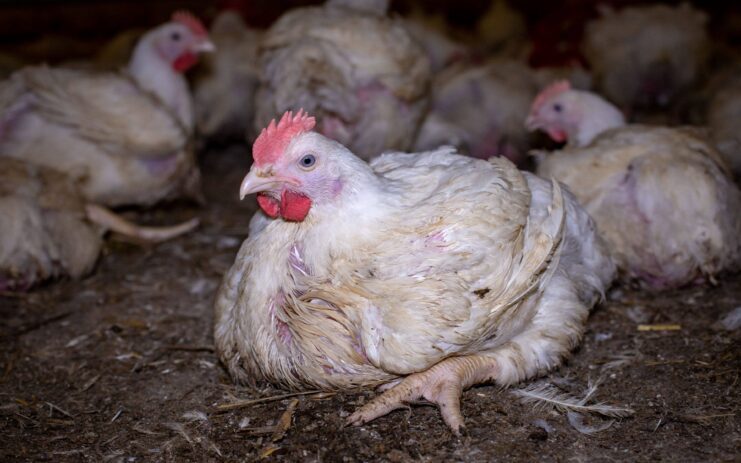
High stocking densities, while efficient for commercial broiler farming, can inadvertently lead to increased stress levels and elevated mortality rates among the birds. To mitigate these challenges, it is crucial to prioritize the well-being of the broilers by providing adequate space and ventilation. Adequate space allows the birds to move, exercise, and establish a natural pecking order, reducing the stress caused by overcrowding. Ensuring that the broilers have enough room to express their natural behaviors is a fundamental element of ethical broiler farming. Additionally, proper ventilation systems in broiler housing help maintain optimal air quality and temperature, further alleviating stress and reducing mortality rates. These factors are essential in creating a comfortable and low-stress environment for broilers to thrive.
3. Disease Management: A Top Priority in Broiler Farming
Broilers are not exempt from the susceptibility to diseases that affect all living creatures. Their high-density living conditions can potentially amplify the risk of disease transmission. Disease prevention and management are, therefore, paramount for broiler farmers. Implementing stringent biosecurity measures to prevent the introduction of diseases to the flock is the first line of defense. Additionally, vaccination protocols and regular health checks are essential components of disease management in broiler farming. Early detection and rapid response to any emerging health concerns are crucial for minimizing the impact of diseases on the flock. Prioritizing disease prevention and management is a top priority for farmers to ensure the health and sustainability of their broiler operations.
The Role of Broiler Cages in Modern Farming
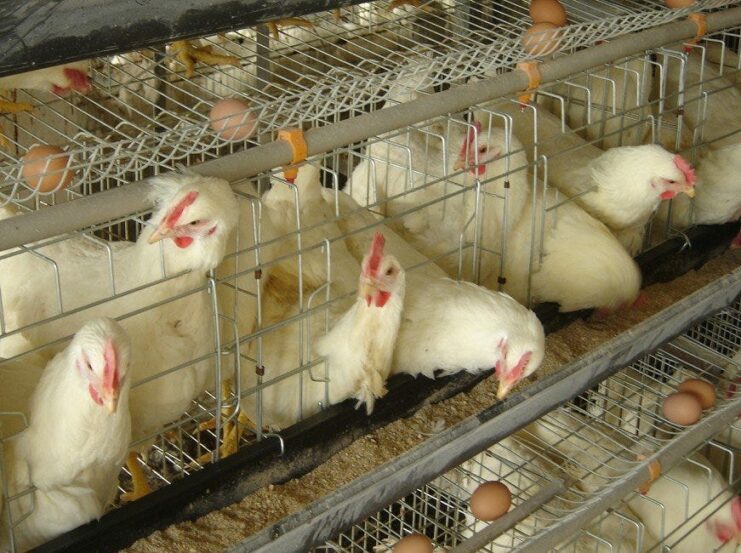
Broiler cages have emerged as a game-changer in the world of broiler chicken farming. These specialized housing systems offer a range of benefits that address many of the challenges associated with broiler farming. Let’s explore the role of broiler cages in modern poultry farming:
- Space Optimization: Broiler cages are designed to maximize space efficiency, allowing for a higher density of birds within a controlled environment. This is particularly advantageous for large-scale commercial broiler farms.
- Improved Hygiene: Elevated above the floor, broilers in cages have reduced contact with waste and potential contaminants. This leads to cleaner, healthier birds and improved meat quality.
- Reduced Injury: Broiler cages are equipped with features that minimize the risk of injuries, such as bruising and feather damage, which can occur in traditional open-floor systems.
- Efficient Feeding and Watering: Broiler cages are often equipped with automated feeding and watering systems, ensuring that birds have consistent access to food and water. This not only promotes growth but also minimizes feed wastage.
- Climate Control: Many broiler cage systems incorporate climate control mechanisms, allowing for precise regulation of temperature and ventilation. This enhances bird comfort, reduces stress, and minimizes disease risks.
In Conclusion
Broiler chickens have undoubtedly revolutionized the poultry industry by providing a consistent supply of high-quality meat. Their rapid growth, efficient feed conversion, and high meat yield have made them a staple in diets worldwide. With the right approach, challenges associated with broiler farming can be managed effectively, and this has been made significantly easier with the adoption of broiler cages. These innovative housing systems not only optimize space and improve hygiene but also contribute to reduced stress and increased overall bird health. As the poultry industry continues to evolve, broiler chickens and their advanced housing solutions remain at the forefront of innovation and efficiency in modern poultry farming.

